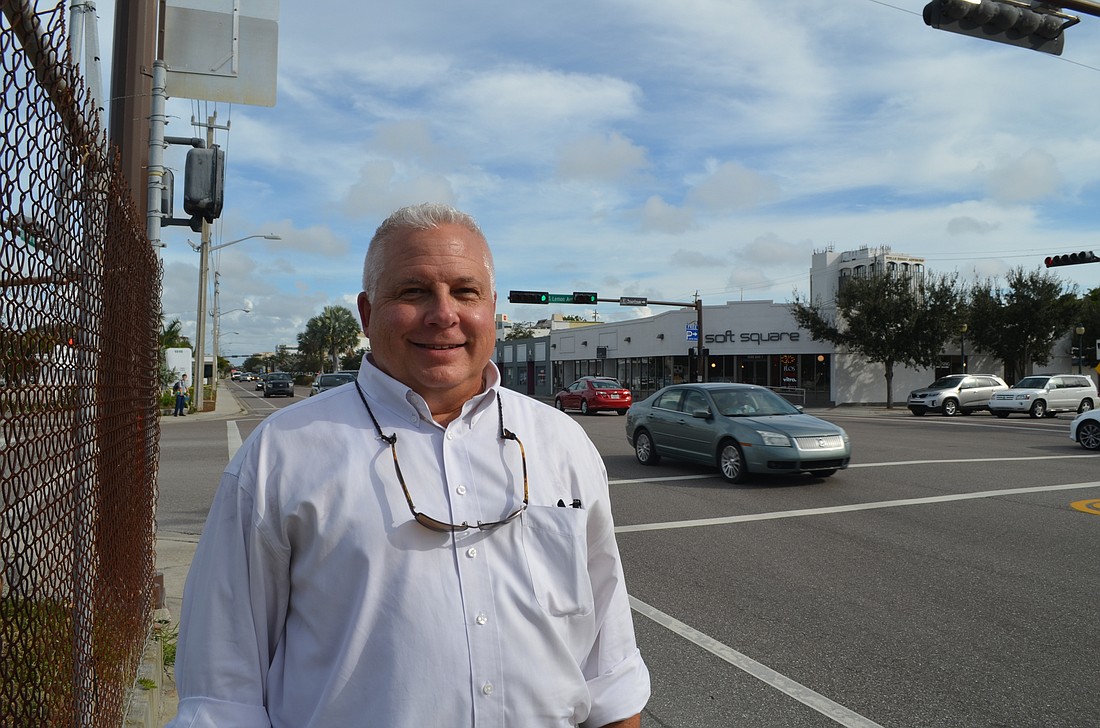- May 8, 2025
-
-
Loading

Loading

Before you criticize a proposal to revamp Fruitville Road in downtown Sarasota, Steve Stancel wants you to know he already knows it sounds weird.
Between U.S. 41 and U.S. 301, Fruitville is a major arterial road. It’s an evacuation route. It’s a link to the barrier islands, to the interstate. During rush hour in-season, it’s already a nightmare.
So for the city to consider narrowing the road from four lanes to two? To propose adding roundabouts? It’s backwards. It’s wrong.
Stancel, chief planner with the city and the point person for plans to redesign Fruitville, understands all of that. But he says the evidence doesn’t bear it out.
“We have literally not found any stories of disasters with roundabouts or road diets,” Stancel said. “We have found plenty of success stories.”
As of now, there are no concrete plans to reshape Fruitville Road. On Feb. 21, the city held a workshop to discuss two proposals. One is the controversial “road diet,” which would narrow the road between Cocoanut and Lemon avenues and install three roundabouts at Cocoanut, Central and Lemon avenues.
The other would keep four lanes between U.S. 41 and U.S. 301, removing bike lanes to expand the sidewalks to at least 10 feet in width. Both plans would relocate bike lanes to Second Street, Fourth Street or both.
The city wants to make it easier for people to get from the Rosemary District to downtown. Officials want to encourage the use of multimodal transportation.
Based on the modeling done in conjunction with consultant Sam Schwartz Engineering, the “road diet” seems to do the best job of accomplishing those goals.
“We’ve run the models; we’ve taken a look at the evacuation numbers,” Stancel said. “The roundabouts continue to work better than the traffic signals in those three locations.”
“The roundabouts continue to work better than the traffic signals in those three locations.” — Steve Stancel
Stancel said it’s the city’s job to address and allay the public’s concerns. If the Feb. 21 meeting is any indication, there’s work left to do. People from the barrier islands expressed grave concerns about the idea of narrowing the road — including Longboat Key Mayor Terry Gans, who said the proposed changes “must be vigorously opposed.”
Gans said he believes the plans are well-intentioned. He understands a desire to foster greater connectivity in the heart of the city, but that does not address Fruitville’s role in the broader regional transportation network.
“Fruitville Road is a critical element of the regional transportation network,” Gans said. “Like it or not, it does not exist in a vacuum of downtown Sarasota.”
The concern extends to prospective city leaders, as well. At a candidate forum Feb. 27, seven of the eight candidates for City Commission said they opposed the plans for narrowing Fruitville. City Commissioner Susan Chapman, who is seeking re-election, said the city lacks a cohesive street grid. Until that changes, Fruitville Road will always be an important connector.
“There are no alternatives,” Chapman said.
Stancel disagreed with that assertion, pointing to Ringling Boulevard and 10th Street as other east-west streets that connect U.S. 41 and U.S. 301. He also said the city is making a conscious decision to promote other modes of transportation instead of focusing on cars.
“Things are going to change between now and 20 years from now,” Stancel said. “I think we’re going to have a better public transportation system. I think people will walk more if we make it more walkable. I think there are options out there the city can look at besides just trying to divert traffic as a way to alleviate vehicle trips.”
“Like it or not, (Fruitville) does not exist in a vacuum of downtown Sarasota.” — Terry Gans
Most crucially, he continued to repeat that maintaining four lanes and traffic signals won’t produce better traffic flow.
“This is a science,” Stancel said. “Traffic engineers have models. The models can be highly, highly accurate.”
Although other residents at he Feb. 21 workshop, particularly cyclists, shared strong skepticism about the plans, the crowd was divided about whether the redesigns were a good idea. Stancel said the city has mostly heard support for creating a more pedestrian-friendly Fruitville.
Early estimates put the cost for both options at just less than $10 million. Stancel said staff will incorporate the input gathered from the public and produce recommendations for the City Commission. A vote on the plans will likely come this month or April.
Designing and engineering will take eight to 10 months, and construction could begin in summer 2018.
“Any concern is a valid concern,” Stancel said. “We need to address it.”